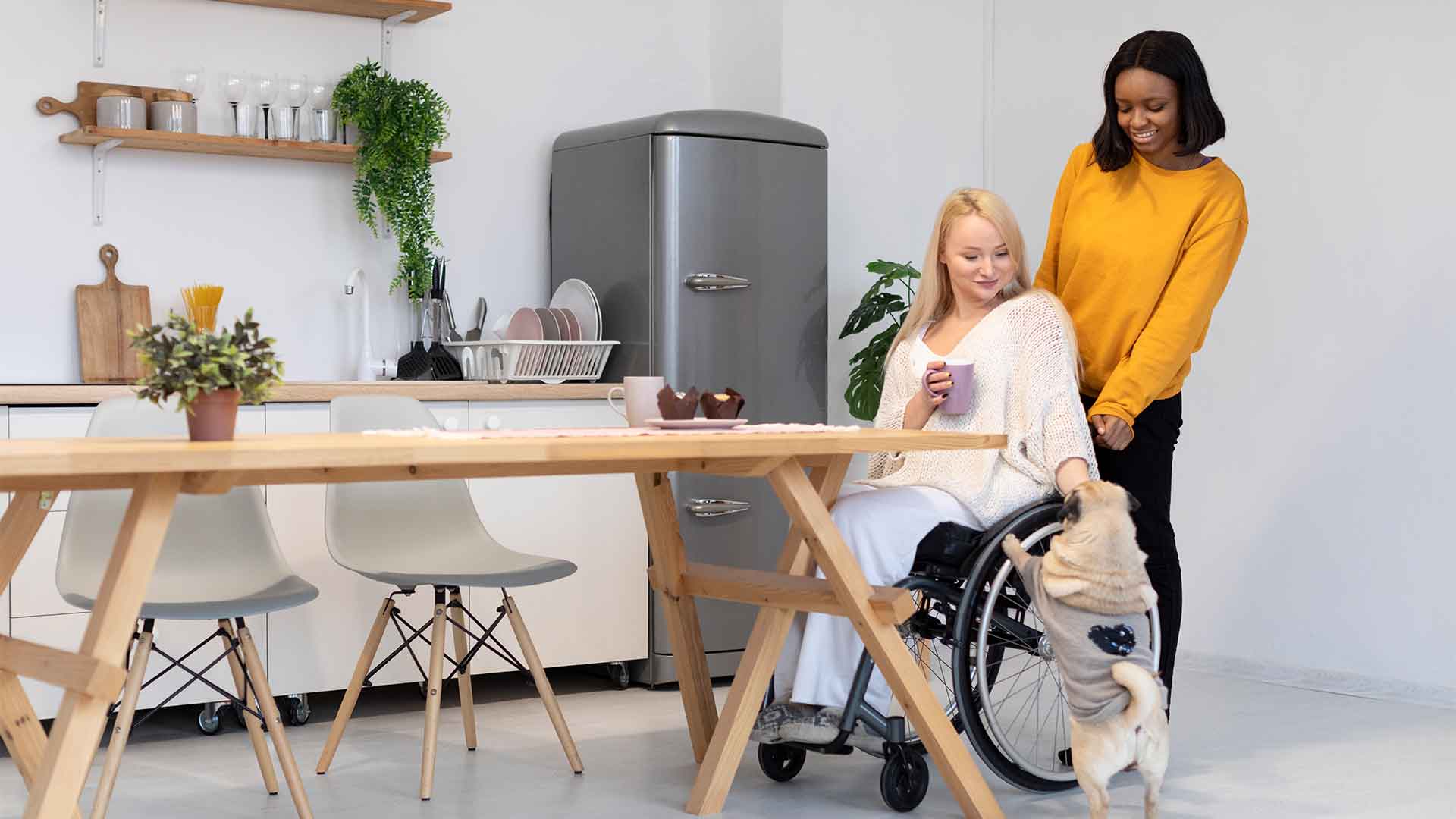Introduction
Taking care of our family members is important, especially when they have special needs. But when the needs are extremely specific, it can be hard to provide the right care at home. That’s where Specialist Disability Accommodation (SDA) comes in to help.
First, let’s understand what Specialist Disability Accommodation is and how it can be beneficial. Then, we’ll talk about how to choose the best provider for this kind of accommodation to ensure the best care for you or your loved one.
So, in simple terms, SDA is a type of housing that is designed to meet the unique needs of people with serious disabilities. It’s a special place that offers the right support and facilities to make life easier for those who need extra help.
Now, when it comes to choosing the right provider for this kind of accommodation, it’s like picking the best team to take care of you or your family member. You want to find a provider that understands the specific needs and can offer the best care and support. This way, you can be sure that your loved one is in good hands and getting the help they truly need.
What does the term Specialist Disability Accommodation (SDA) mean?
According to the NDIS (National Disability Insurance Scheme), specialist disability accommodation is a place where people with disabilities can live comfortably and independently. It’s like a home that is specially made to help those with certain limitations to live on their own as much as possible.
Now, the kind of place depends on what each person needs and where they are located. This special accommodation can be in group homes, places for older people who need care, or even in your own home. It’s designed to make life easier for those with disabilities, helping them live in a way that suits them best.
In what ways can specialist disability accommodation support you?
Living in specialist disability accommodation has many benefits. Here are some important advantages:
Privacy and Access to Carers: You get your own private space in a house or apartment where others with disabilities also live. This allows you to have personal space while having access to caregivers whenever you need help. It helps you be more independent.
Less Stress on Your Family: This type of accommodation is tailored to your needs, which means your family doesn’t have to worry about your care. This way, you and your family can focus on spending time together and enjoying your relationship without the stress of caregiving.
Living with Peers: You share this space with people who have similar challenges. Being around others who understand what you’re going through can be very helpful. It reduces feelings of loneliness, provides a support network, and gives you the chance to socialise.
Greater Independence: You have more control over your daily activities. You get to decide what you want to do, whether it’s going for a walk, cooking dinner, or watching TV. This independence is empowering.
Access to Support Workers: Support Workers are there to help with things like preparing meals, assisting with medical needs, and providing extra care. You can choose Support Workers who are a good fit for you, giving you more control over your support.
Safe and Comfortable Living: Specialist Disability Accommodation ensures that NDIS participants have a secure and comfortable place to live. It’s designed to meet your specific needs and provide a welcoming environment.
What does SDA appear like?
There are different types of specialist disability accommodation that NDIS participants can choose from. Here are some options:
Group Homes: These houses typically have six to eight residents living together, and there are caregivers available 24/7 to provide support.
Residential Aged Care Facilities: These facilities may be suitable for NDIS participants who are 65 years or older. They offer a mix of residential, nursing, and dementia care.
Shared Living Accommodation: This is a good choice for NDIS participants who want to live independently but still need some help with tasks like cooking and cleaning. In shared living, you have your own private space, and there are common areas like a kitchen or lounge that you share with others.
In simple terms, Specialist Disability Accommodation gives NDIS participants and older individuals different options to choose from, depending on their preferences and needs.
What qualities distinguish a good Specialist Disability Accommodation provider?
When picking an SDA provider, there are a few things to keep in mind. First off, make sure they are NDIS registered. This means they’re approved to provide SDA.
Think about what’s important to you. Do you want to be close to family and friends? Do you need special equipment not found nearby? Also, it’s crucial that the place feels like home. The staff should be friendly, and the environment should be comfy for those days when you’re not feeling well or just want some relaxation.
Ask lots of questions. It’s your chance to learn about the accommodation, services, and fees. Don’t hesitate to speak up if you don’t understand something or if something doesn’t feel right. NDIS and SDA providers are there to help, so make sure they know what you need and like.
Conclusion
In conclusion, Specialist Disability Accommodation (SDA) is vital for people with special needs, offering different living options like group homes or shared living for independence and comfort. SDA not only provides a suitable place to live but also helps build connections, reduces family stress, and boosts overall well-being.
When choosing an SDA provider, it’s important to check if they are registered, consider being close to family, and ensure the place feels like home by asking questions and sharing preferences. This ensures the best care and support for you or your loved one.



